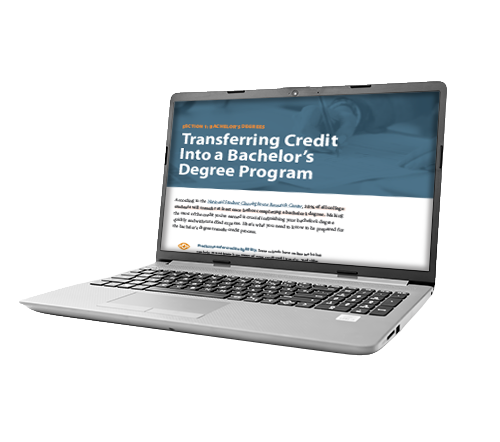Request Information
We're Sorry
There was an unexpected error with the form (your web browser was unable to retrieve some required data from our servers). This kind of error may occur if you have temporarily lost your internet connection. If you're able to verify that your internet connection is stable and the error persists, the Franklin University Help Desk is available to assist you at helpdesk@franklin.edu, 614.947.6682 (local), or 1.866.435.7006 (toll free).
Just a moment while we process your submission.

Tips for Choosing the Right Doctoral Program for You
Choice. We all love it. We all hate it.
We love choice for the possibilities it opens. We adore the accompanying feelings of excitement, control and empowerment.
On the other hand, we also hate choice. We hate it for the confusion it can bring, and we despise feeling taxed, overwhelmed or mired.
Yet choice is part of life – and certainly part and parcel for deciding your future and how you’ll make your mark.
Should I earn a doctorate? This article can help you decide.
Which is best for my career: a professional doctorate or a Ph.D.? It depends on you and on these factors.
Accelerate your completion time and lower your total tuition cost at every academic level. Download this free guide for tips on maximizing your transfer credit.
Which doctoral program is right for me? Again, it depends. But since the best decisions are made in the details, you’ll want to gather, filter and synthesize all the available information starting with this:
6 Things to Know Before Choosing a Doctoral Program
1. Structure
Until just a few years ago, there were zero professional practice doctorate programs in the United States. Now, there are more than 500 programs and more than 10,000 degrees have been awarded. With increased demand, many more programs are on the horizon.But not all programs are created equal.For example, Franklin University offers the nation’s first program combining professional practice in both leadership and instructional design at the doctoral level. This Doctor of Professional Studies in Instructional Design Leadership, or DPS in IDL, is a practical degree that enables both subject mastery in this growing industry, as well as field application.It’s best to enroll in a program that helps you advance yourself and your field, while also supporting your unique needs as a working adult. While very few programs offer online classes, those that do can be especially convenient for professionals like you who are looking to successfully balance home, work, school and family obligations.
Consider This: Does the university offer convenient online classes, in-class courses or a combination of both?
2. Outcomes
If you’re going back to earn your applied doctorate, it better be worth your while. Choose a program that will both challenge and equip you beyond your current level of success.For example, look for a program that reinforces the technical aspects of research, while also elevating such in-demand skills as communication and technology.
Determine if your chosen program will:
- Provide you with comprehensive research principles and methodologies
- Offer both theoretical and practical principles
- Advance your discipline knowledge
- Increase your specialized and/or cross-discipline skills
- Align your professional interests and goals
Consider This: Is the quality of the applied doctorate coursework innovative and progressive enough to give you a robust learning experience while also strengthening your professional competencies?
3. Approach
Being a working professional with a life beyond the office is tough enough; but add doctoral-level coursework and you quickly realize you need a plan to finish before you even start.According to researchers Karen Hunter and Kay Devine in their report, “Doctoral Students’ Emotional Exhaustion and Intentions to Leave Academia,” many students are unaware of, and poorly equipped to handle, the rigors and challenges of their programs.“Doctoral students have previously experienced high academic achievement,” they write, “but many experience depression during their program due to financial stress, debt, isolation, thesis difficulties, and problems with their advisor. Many doctoral students decide to abandon their studies; average rates of attrition in North American and Australian doctoral education have been reported to be as high as 50 percent for the past 50 years.”The researchers go on to say, however, that supportive faculty and advisor relationships and support have a markedly positive affect on well-being, reducing emotional exhaustion and program drop out.Taking a cue from these findings, ask if your chosen program has student-support services, such as faculty mentoring, learning communities and doctoral colloquia. Look for a program that can not only keep you on track but also motivate you to completion throughout the months and years it can take. And, of course, look for a program that won’t leave you to “go it alone.”Some doctoral degree programs, like those offered at Franklin University, are purposefully and intentionally designed for you to finish. Franklin’s embedded dissertation structure, for example, accelerates completion while minimizing stress and uncertainty. It’s a step-by-step approach that features built-in completion milestones.
Consider This: Is there an integrated approach that includes support services and resources to help you move quickly and successfully toward earning your applied doctorate?
4. Transferability
When it comes to your background and experience, do any of these sound familiar? How many of these describe you?You’ve worked hard to become a top-performer or educator.
- You have acquired valuable knowledge, wisdom and experience.
- You completed some doctoral-level coursework.
- You earned certifications and licensures in your field.
If you see yourself in three or more of these, then you’ll want to look for a doctoral degree program that grants learning credit for what you already know. Franklin University grants up to 24 hours of learning credit for previous doctoral work, as well as approved certifications and licensures – that means you can earn your degree faster while you save money on tuition expenses.
Consider This: Does the college or university have a generous transfer-credit policy?
5. Faculty
Learning is a two-way street: You have to do your part and your instructor has to do his or hers. Which is exactly why the quality of faculty is another important consideration when choosing your doctoral degree program.It’s been said that the best teachers are those who inspire. And where better to get inspiration from than someone who’s walked the doctoral path before you.So, first, find out if the faculty teaching your courses have terminal degrees in their field for the course they teach. Second, ask how many faculty are not only doctorally qualified within their discipline but also practicing and/or leading in their field.
Consider This: Are the faculty for your preferred degree program doctorally and/or practice-minded
7. For Profit vs. Nonprofit
You can get a degree from one of two types of universities: (1) a for-profit or (2) a nonprofit.For-profit schools, also called “proprietary schools,” are money-making operations that are accountable to shareholders and owners. Their purpose is to make a profit by providing education. A U.S. Senate report says for-profits are typically more expensive, calling them “high-tuition schools.”Nonprofit schools, on the other hand, are student-centric educational institutions directed by a board of trustees for the purpose of providing a quality education. On average, nonprofit colleges and universities cost about the same as public universities.
Consider This: Is your preferred doctoral degree program offered at a for-profit or nonprofit university?





